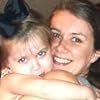To answer questions about
We Need to Talk About Kevin,
please sign up.
Amy
It is my firm conviction that there was nothing wrong with either child, it was the mother who had something wrong with her. Here is my theory on this, and my reasoning. Some of the views I express here may be quite unpopular with some people.
Eva treated Kevin badly from birth and conditioned him to hate her and to behave the way he did, and when Celia was born, she conditioned her to be needy and scared of everything.
Children are NOT inherently bad from birth. Kevin definitely had some behavioural problems (possibly ADHD or an Autistic Spectrum disorder) but that could have been due to the foetal alcohol syndrome he developed due to his mother's drinking when he was in the womb.
There was no way of Kevin being so calculated as a child, to the point of being portrayed as evil because children simply do not think that way. His mother projected all his 'bad behaviour' onto him and in time he began to behave the way she expected him to, and likewise with Celia, who was mollycoddled by her mother from the day she was born.
Celia's unnatural fears were not caused by Kevin. They were caused by her mother. Celia saw how her mother treated Kevin and was afraid that if she did not continue to cling to her mother the way she did, her mother would begin to treat her the same way.
The incident with the acid could well have been a childish plan cooked up by Celia herself to try and get their mother to treat them both the same way by persuading her that Celia is also badly behaved for playing with the drain cleaner fluid, and the plan backfired as she got it in her eye by accident. This explains her reluctance to point the finger at Kevin, because it wasn't actually his fault. He is likely to have gone along with Celia's plan in a last-ditch, desperate attempt to get his mother to see that both children are the same and should be treated as such.
It's actually really surprising how many of these answers are siding with the mother. Eva was the evil one in this novel. She is a VERY unreliable narrator and definitely has some kind of mental health issue. Munchausen's Syndrome by Proxy comes to mind here, where parents project certain behavioural traits onto their children for various reasons (the actual syndrome pertains to illness and diseases).
Reading this novel put me in mind of Dave Pelzer's 'A Child Called It' although that is from the point of view of the mistreated child and not the mother who is convinced her child is bad and evil. Eva broke Kevin's arm once, who knows what else she did to him. She may well have caused his 'illness' when he was 10 that confined him to his bed and could have killed him. Maybe she poisoned him? She (as the narrator) is definitely not going to admit that to the reader so it's up to us to judge.
I believe that is the author's aim though - to present us with a one-sided ambiguous story and leave it up to us to judge.
Eva treated Kevin badly from birth and conditioned him to hate her and to behave the way he did, and when Celia was born, she conditioned her to be needy and scared of everything.
Children are NOT inherently bad from birth. Kevin definitely had some behavioural problems (possibly ADHD or an Autistic Spectrum disorder) but that could have been due to the foetal alcohol syndrome he developed due to his mother's drinking when he was in the womb.
There was no way of Kevin being so calculated as a child, to the point of being portrayed as evil because children simply do not think that way. His mother projected all his 'bad behaviour' onto him and in time he began to behave the way she expected him to, and likewise with Celia, who was mollycoddled by her mother from the day she was born.
Celia's unnatural fears were not caused by Kevin. They were caused by her mother. Celia saw how her mother treated Kevin and was afraid that if she did not continue to cling to her mother the way she did, her mother would begin to treat her the same way.
The incident with the acid could well have been a childish plan cooked up by Celia herself to try and get their mother to treat them both the same way by persuading her that Celia is also badly behaved for playing with the drain cleaner fluid, and the plan backfired as she got it in her eye by accident. This explains her reluctance to point the finger at Kevin, because it wasn't actually his fault. He is likely to have gone along with Celia's plan in a last-ditch, desperate attempt to get his mother to see that both children are the same and should be treated as such.
It's actually really surprising how many of these answers are siding with the mother. Eva was the evil one in this novel. She is a VERY unreliable narrator and definitely has some kind of mental health issue. Munchausen's Syndrome by Proxy comes to mind here, where parents project certain behavioural traits onto their children for various reasons (the actual syndrome pertains to illness and diseases).
Reading this novel put me in mind of Dave Pelzer's 'A Child Called It' although that is from the point of view of the mistreated child and not the mother who is convinced her child is bad and evil. Eva broke Kevin's arm once, who knows what else she did to him. She may well have caused his 'illness' when he was 10 that confined him to his bed and could have killed him. Maybe she poisoned him? She (as the narrator) is definitely not going to admit that to the reader so it's up to us to judge.
I believe that is the author's aim though - to present us with a one-sided ambiguous story and leave it up to us to judge.
Erin Toland
This answer contains spoilers…
(view spoiler)
Urska
This answer contains spoilers…
(view spoiler)
Erin
When she answered her mom about how she hurt her eye, I thought her answer was very telling. The first thing she said was "Kevin", then she regrouped and gave what sounded like a very rehearsed answer. I imagine he threatened her about telling their parents.
Jeanne
To my mind, she is the polar opposite of her brother in every way. Where he is intellectually advanced, she is intellectually weak. Where he is fearless and dissipated and sly, she is innocent and weak and uncomprehending. So neither is normal. One is extreme genius and corruption and ennui and the other is mentally slow, incredulous, and fascinated with anything shiny and sparkly. I toyed with the idea that one is a parody of extreme masculinity and the other a stereotype of extreme femininity that plays off the parents. The dad is a hyper sexed stereotype of a real man with a truck who votes Republican and drinks beer and loves America and the mother is something of an enigma -- foreign, darkly witty, conflicted about everything. Only the mother, in the end, is allowed to have a complex real personality.
Ashley Cooprider
I agree with the other two answers (although you asked this a while ago). Celia was probably slower than Kevin, and probably average intelligence. A lot of her fears probably (whether subconsciencely or not) had to do with her brother. She was such a loveable child...poor girl.
Sue Harrison
What I really admire about the book is that, as in real life, there are no clearcut answers.
Kel Midthnaetitulla
This answer contains spoilers…
(view spoiler)
Kaci M Goldinher
Dr. Daniel Siegel explains a lot of this phenomena with attachment theory. I have been a therapist in the foster care system for years. Kids just aren't "born bad;" they've experienced abuse in the womb (drugs/alcohol) as well as neglect, plus more abuse as little ones. Even in "healthy kids," some parents aren't aware of their behavior and past issues that get projected onto their own children. It could be a subtle look, an action, a mood, etc. Whenever there is a lack of integration in the brain- attachment issues, personality disorders and sociopathy can prevail. :/
F Baker
I don't think Celia was 'slow' she was described as 'gentle' and that's not quite the same thing. Children raised in abusive situations often over empathize with the abuser (in an attempt to understand/avoid abuse/reason with themselves that they are still loved). It's possible that she didn't want Kevin to get into trouble, not even just from fear alone, but also because she worried what would happen *to him* if she did. She also may have taken cues from her father who consistently praised Kevin, made excuses for him, minimized the cruelty he portrayed and villainized anyone who brought attention to it. Maybe she didn't want to be seen as a 'problem' - her father never listened to her mother and supported her, he only blamed her, so the daughter may have picked up on this and felt it was 'bad' to say that Kevin had done something to hurt her. Maybe she simply learned that, in her family, complaining about Kevin only led to more praise and protection for Kevin. It's also possible she didn't want her mother to get into trouble - if she told her mother it was Kevin, that could potentially tear her family apart.
It's not usually as straightforward as 'children are born bad' vs 'parents make children bad'. It often begins with a genetic disposition and the environment (especially parents) can either help a child navigate their difficulties or increase the child's difficulties through their own (the parents') behaviors or situation. This is why sometimes you find very pro-social and amenable people who grew up in harsh and hostile conditions and sometimes you find very difficult and anti-social behaviors in those who appear to have sprung from a stable home. As in real-life, the book doesn't clearly delineate just *how* unstable the parenting was, as we view the situation from the position of a potentially unreliable narrator.
It's not usually as straightforward as 'children are born bad' vs 'parents make children bad'. It often begins with a genetic disposition and the environment (especially parents) can either help a child navigate their difficulties or increase the child's difficulties through their own (the parents') behaviors or situation. This is why sometimes you find very pro-social and amenable people who grew up in harsh and hostile conditions and sometimes you find very difficult and anti-social behaviors in those who appear to have sprung from a stable home. As in real-life, the book doesn't clearly delineate just *how* unstable the parenting was, as we view the situation from the position of a potentially unreliable narrator.
Sirts
Cecilia never blamed him in anything and I'm pretty sure the reason was that she was living in scare. Usually parents never notice the real picture of their kids, they even don't have that much time. They have too much grown up stuff to deal with so who knows what kind of horrible things he did to her and it probably got worse after the pet, because now he was able to chantage her. And when he got tired, making it disappeared was the test to show her what he is capable of. Why else was she to scared to actually tell about the open cage.
I also think he made her poure Drano in to her eye by her self. He was really good with manipulation and she little and scared.
So yes she was so tortured, abused that she didn't know any different. And all she was able to do after the accident..was to try to stay with mom as much as possible. Poor little thing.
I also think he made her poure Drano in to her eye by her self. He was really good with manipulation and she little and scared.
So yes she was so tortured, abused that she didn't know any different. And all she was able to do after the accident..was to try to stay with mom as much as possible. Poor little thing.
Dale Rosenberg
When Eva asks Celia what happened, all she will say is she got something in her eye and Kevin helped her wash it out. I think she did get something in her eye and he "washed it out" with the poisonous drain cleaner.
About Goodreads Q&A
Ask and answer questions about books!
You can pose questions to the Goodreads community with Reader Q&A, or ask your favorite author a question with Ask the Author.
See Featured Authors Answering Questions
Learn more














